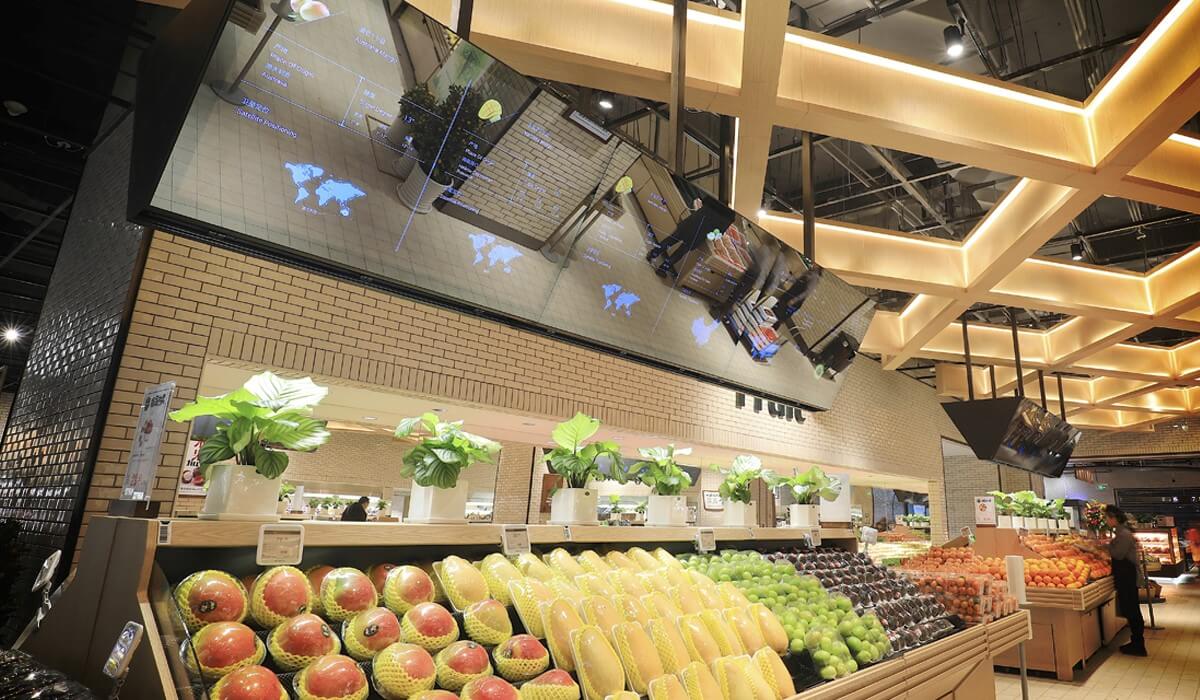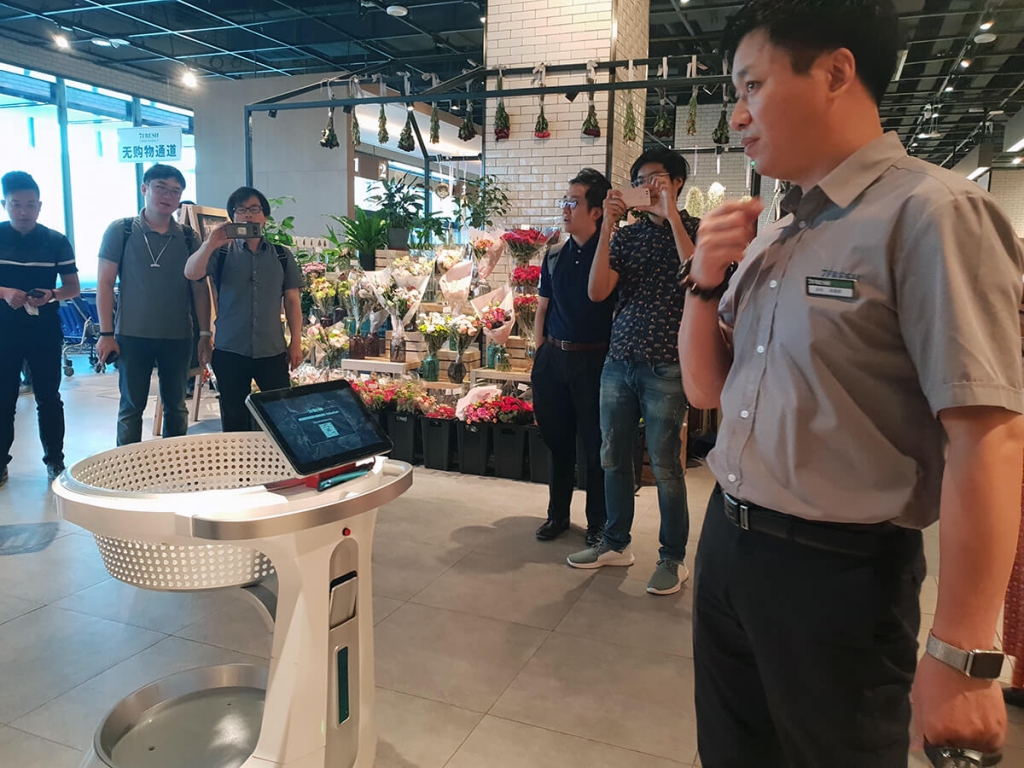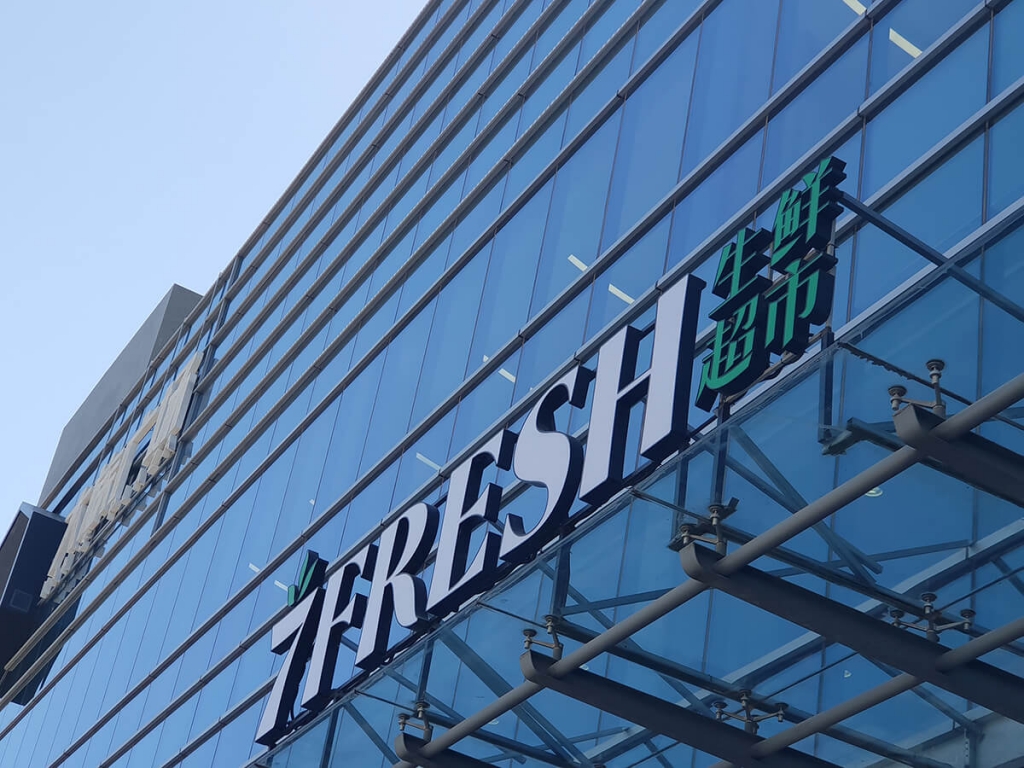ใครๆ ก็พูดถึงเทคโนโลยีบล็อกเชน (blockchain) แต่อาจจะยังมีผู้สงสัยว่า blockchain คืออะไร เพื่อให้เข้าใจกันได้ง่าย จึงขอเกริ่นให้ฟังก่อนว่า เทคโนโลยี blockchain เป็นของใหม่ที่ถูกคิดค้นขึ้นเพื่อช่วยแก้ปัญหาการเชื่อมต่อที่ไม่ครบวงจร ซึ่งเทคโนโลยีอินเทอร์เน็ตปัจจุบันยังทำไม่ได้ และการปลดล็อกสิ่งแรกที่ทุกคนต่างก็สนใจคือเรื่องเงิน

Women without helping hands of a man while shopping no need to worry anymore. In the future, supermarkets will have Artificial Intelligence to help you do the shopping.
Welcome to 7Fresh, the first digital supermarket of JD.com in Beijing, China. With the areas that span across 5,000 sq.m, half of the space is dedicated for selling areas and another half for warehouse. The supermarket has a huge variety of products from more than 2,000 partners. Most are imported products and fresh produce.
At a first glance, it looks like general supermarket, with daily fresh stuffs, clean environment, and wide variety of products that allows everyone to enjoy shopping. But the most outstanding feature of supermarket in the future will be modern technology that serves the needs of modern people.
With the model robot which works like ‘smart shopping cart’, it allows women to enjoy shopping with their kids very comfortably. They don’t have to worry about waiting for shopping carts any longer. Customers or shoppers will just wear wearable device provided by the supermarket. The device will then send signal to the robot which will help them navigate while shopping.
During the shopping, when a piece of fruit or vegetable is placed on a barcode reader, a smart mirror on the shelf will show the information and details of each particular product such as production area, weight, and nutritional facts of the product.

The examination of products’ resources will be based on blockchain technology. It will provide information on food safety starting from production to logistics process. The technology is derived from the cooperation of JD.com, Walmart, IBM and Xinghua.
Some kinds of living animals such as fish or other marine animals, an electronic chip will be put in so that it can be traced back from where and since when the fist was caught and customers will know the freshness of the product.
At the shelf, there will be electronic price tags which enable supermarket to update product prices both on the shelf and online system at the same time. This will reduce the labour work when prices of products have been changed.
In terms of payment, buyers can pay at the cashier counter or by themselves by scanning barcode to the calculator system, then the payment will be made via mobile though WeChat account, which is a eWallet system of JD.com. It also has face detector system in the 7Fresh application which is useful for identifying the person, make it safe and secure for customers to make a mobile payment.

Those who have no time to go shopping, they can do online shopping as well. When the purchase order is made, it will be sent to supermarket. Staffs will then arrange products as ordered and place them on automatic belt to prepare for delivery. The delivery process can be completed within 30 minutes, but customers should be within the 3 kilometers distance from supermarket as to guarantee the freshness of product. This is a perfect combination of online and offline shopping.
Most customers of this supermarket are young people aged between 20-40 years. This future supermarket also has another branch in Beijing as well.
As planned, JD.com is planning to open up 10 branches of such automatic premium supermarkets within the end of this year and will increase to 1,000 branches in the next five years.
This is the changing trend of supermarket shopping in Beijing. In Thailand, supermarket is also changing. For example, the ‘auto self check out’ system that have been in place for several years, if they develop the system to better meet customer satisfaction, provide fresh, reliable products that meet customer needs, reduce stocks, it will help enhance efficiency of the entire supply chain and increase customers’ shopping experience.


